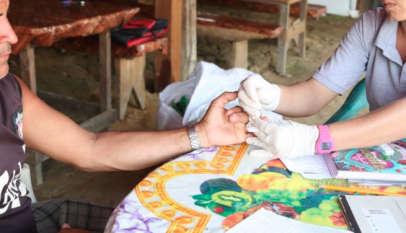OP-ED | Africa’s Permanent Seats at UN Security Council: Is the United States Proposal Acceptable? By Désiré Assogbavi
Amidst the growing demand for Africa to have two permanent seats on the UN Security Council, Désiré Assogbavi wonders if the United States proposal for Africa to have two seats without veto rights is meaningless.

There is a growing demand and an urgency to increase the effectiveness of the United Nations’ abilities to maintain international peace and security. The current configuration of the UN Security Council does not reflect today’s geopolitical realities. For Africa, in particular, a continent of 1.4 billion people, having full permanent seats at the UNSC is not just about redressing a historical injustice. It is also a matter of legitimacy and credibility of the Council.
The United States has just announced its support for creating two permanent seats for African States at the United Nations Security Council (UNSC), but it ruled out extending veto rights to new permanent members.
Would Africa accept this offer?
The current African common position, known as the “Ezulwini Consensus,” calls for two permanent seats with all the prerogatives and privileges of permanent membership, including the right of Veto, and five non-permanent seats.
The veto power has historically hindered the Council’s effectiveness and fairness in addressing global peace and security issues, so Africa is, in principle, in favor of its abolition to enhance the Council’s functionality. However, if member states opt to maintain the veto power, it should be extended to all new permanent members for the sake of fairness and justice. The UNSC reform should then consider either no Veto at all or a Veto for every permanent member.
So, it is unlikely that the continent will accept the United States proposal for two permanent seats without veto rights. Considering the current setting, a permanent membership of African countries at the UNSC without Veto Power is meaningless. It will look more like a “second-class” membership status. Some analysts in the continent see this status as a “Permanent Observer Membership” at the Council.
Which countries to represent Africa?
Despite the Ezulwini Consensus stipulating that the African Union should be responsible for selecting Africa’s representatives in the Security Council, the continent has so far been unable to establish the criteria for choosing the two African candidates for permanent seats among its 55 member states.
African countries must engage in constructive dialogue and collaboration to establish common goals and criteria for selecting representatives who will best serve the continent’s interests.
What factors should determine who represents the African continent? This process may involve considering factors such as capacity, geopolitical importance, diplomatic experience, regional representation, commitment to upholding international law and human rights, and the ability to play within this complex global system effectively.
Should the continent push countries with large populations and/or big economies and diplomatic capacity, such as Algeria, Nigeria, Egypt, Morocco, Ethiopia, or South Africa? Should a seat be reserved for the continental body, the African Union? On the latter, the difficulty will be that the African Union is still a purely intergovernmental body with no supranational authority. Member states maintain their sovereignty and decision-making power, and the AU only acts as a forum for coordination, cooperation, and consultation among its member states. The continent has serious homework to do on this.
Accountability
While deliberating on its representation, the African Union may also consider putting in place an accountability mechanism for its representatives at the UNSC. We know how proxy games, political influence, and pressure can impact decisions and votes at the United Nations. Recent history reminds us that in 2011, all three African non-permanent members of the Security Council (Gabon, Nigeria, South Africa) backed UNSC 1973, authorizing NATO’s military actions in Libya despite the African Union’s ongoing efforts to seek a peaceful solution to the crisis. The resolution was tabled by France, the UK, and Lebanon.
Going forwards…
An amendment to the UN Charter would be needed to change the composition of the Council. Article 108 of the UN Charter states that an amendment requires the support of all Permanent Five (P5) members and a two-thirds majority of UN member states in the General Assembly. This will surely not be an easy process.
The Summit of the Future, held on the margins of the 79th UN General Assembly, creates an additional opportunity to correct global governance and reinvigorate the multilateral system, including a fair reform of the UN Security Council that recognizes the urgent need to make it more representative, inclusive, transparent, efficient, effective, democratic, credible, and accountable.
Désiré Assogbavi is the Senior Director of Advocacy and Strategic Relations, Africa at the ONE Campaign. The views expressed in this Op-Ed originally published on the blog Assodesire.com are unequivocally personal. Current and previous employers are not to be quoted under any circumstances. The views do not necessarily reflect African Newspage’s editorial policy.













